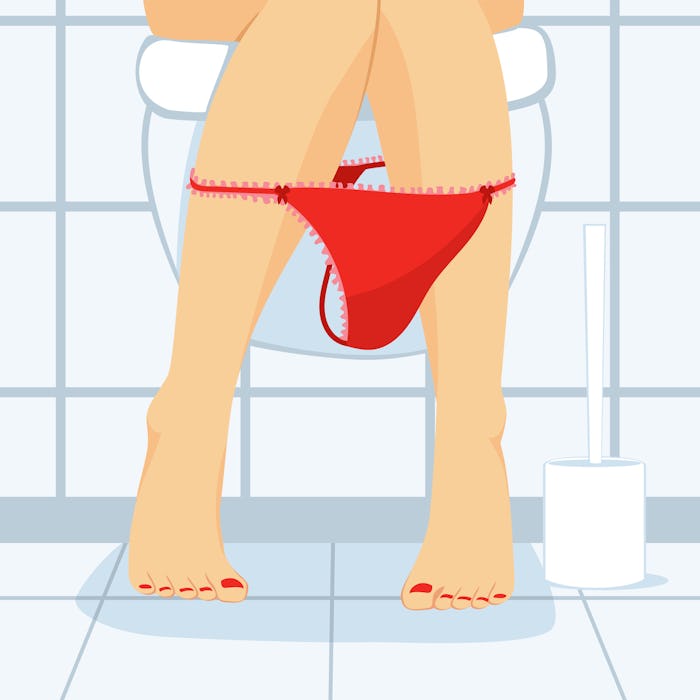Life

Postpartum Discharge Red Flags To Pay Attention To
The postpartum period has its own set of challenges, the most obvious of which is a newborn baby who needs lots of attention. But it's important to take care of your own body during this time as well, given the many changes it has undergone. For instance, staying mindful of the postpartum discharge red flags that might occur can help you get through those initial post-birth days with peace of mind.
To begin, it's smart to know about the ways postpartum discharge will normally happen. To be blunt, this is not some minor seepage that you can handle with one tiny panty liner. According to the Mayo Clinic, your vaginal discharge (AKA lochia) will go on for weeks after the delivery. As further explained by the Mayo Clinic, it will start off as a heavy red flow for a few days, and then eventually taper off to a yellow or white color. With this in mind, keeping an eye out for potential deviations from this standard is a good idea. After all, this would be the worst possible time for you to cope with a sudden health issue.
For better or worse, your nose may be the first thing to let you know something is wrong. As explained on Baby Center, if your lochia contains a foul smell, then this may indicate a postpartum infection. To make matters worse, a postpartum infection could mean anything from a uterine to a kidney infection, as noted in WebMD. Because this may point to something serious, it's a smart move to let your physician know at once if your lochia smells off in any way.
In addition to smell, it's a good idea to keep an eye on the way your lochia looks. If the lochia seems exceptionally heavy (say, your pads are totally drenched within about an hour), then it's time to see your doctor at once, as noted in What To Expect. Large blood clots are also a bad sign. Basically, these symptoms may signify a late postpartum hemorrhage, according to Baby Center, which may require immediate medical attention.
Sure, the idea of bleeding for days after birth is scary enough, so these conditions are probably not something you want to think about. Staying informed is an excellent way to stay safe, though. Hopefully, both you and your baby will make it through those initial postpartum days without incident.